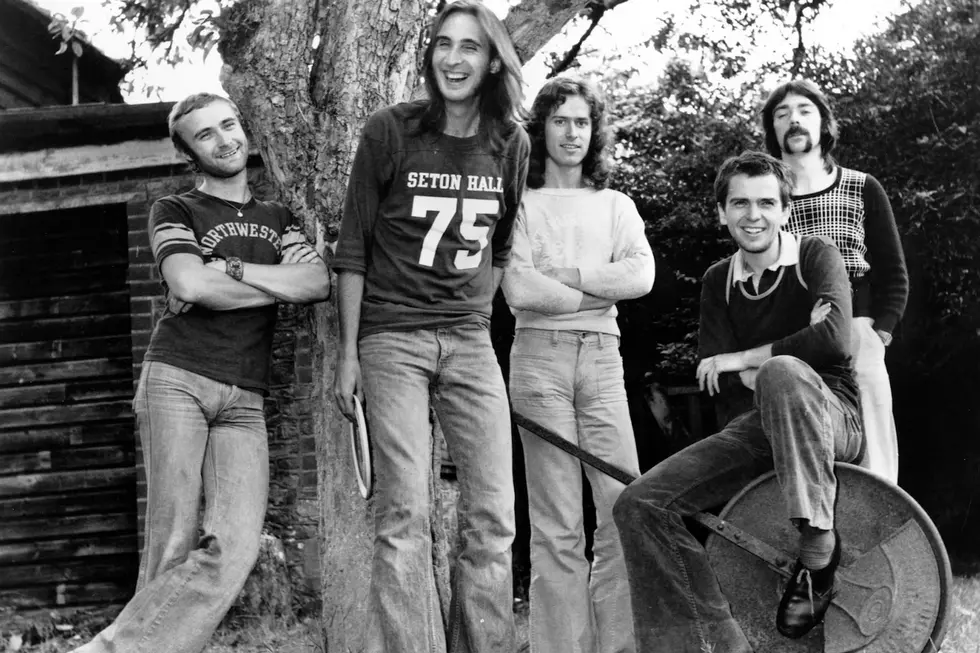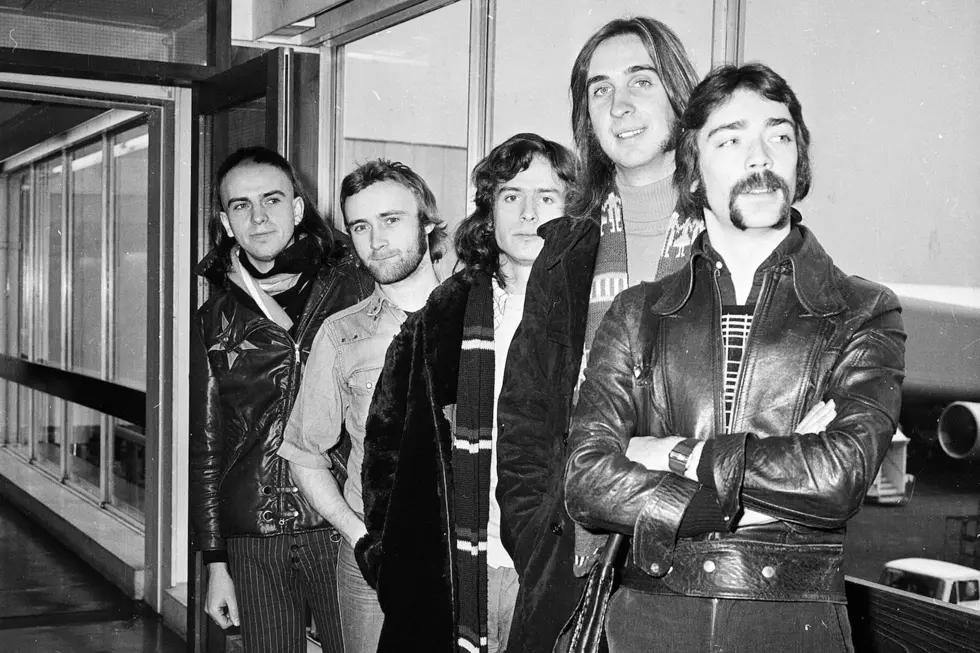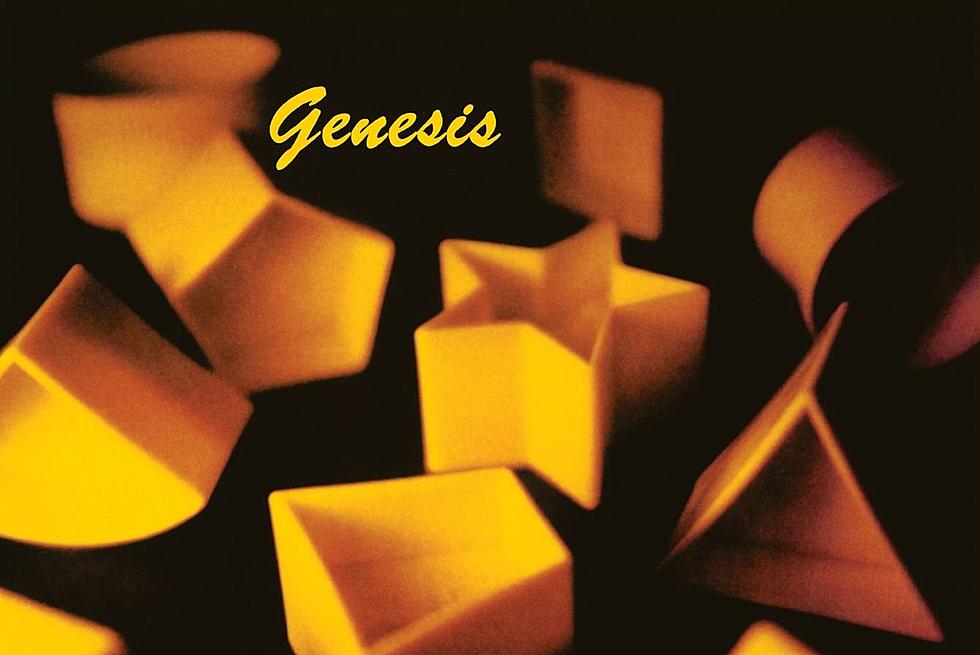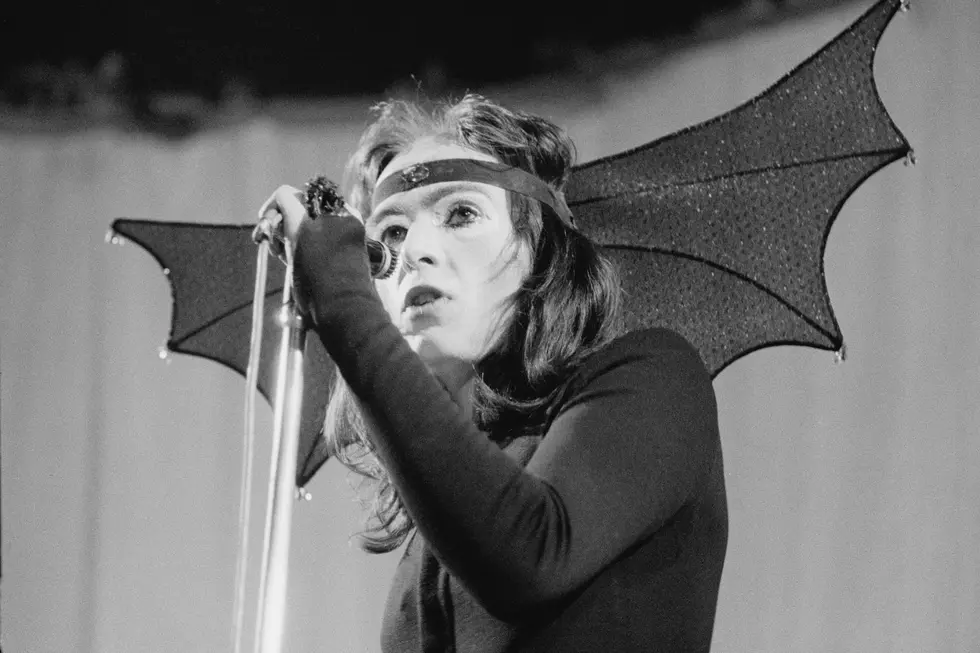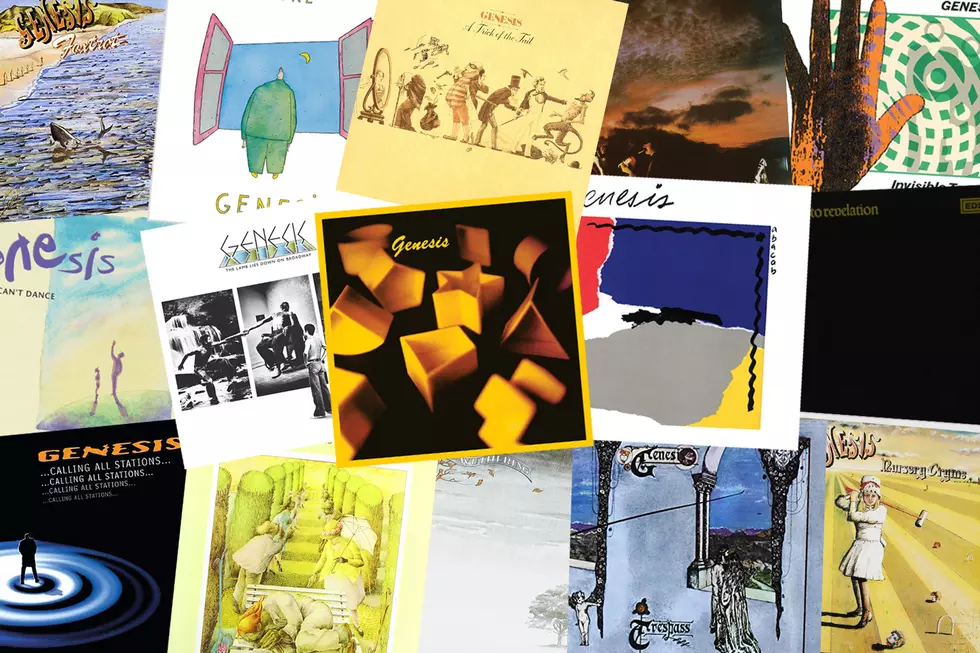Genesis, ‘Congo': Rock’s Hidden Gems
When Phil Collins quit Genesis in the mid-'90s, he didn't just leave his former group without a drummer — as the voice behind the their biggest hits, he also put ex-bandmates Tony Banks and Mike Rutherford in the awkward position of rebooting one of rock's biggest acts with a new singer for their 15th album.
Given how successful the Collins-era Genesis formula had become, starting over was always going to be a difficult task, so it's to Banks and Rutherford's credit that instead of seeking out a sound-alike — such as Paul Carrack, singer for Rutherford's side project Mike & the Mechanics — they went with a guy who had more of a vocal resemblance to the band's original frontman, Peter Gabriel.
Ray Wilson was unknown to many Genesis fans when he joined the lineup, but he'd enjoyed some success in Europe as the singer for a band called Stiltskin, lending vocals to their Top 20 LP The Mind's Eye and its No. 1 single, "Inside." The group split up in 1996, leaving Wilson looking for a new gig at an opportune moment for Genesis.
"Somehow, Tony and Mike had heard the Stiltskin album," Wilson told Q. "Phil had left and they knew Stiltskin was finished and they also thought that my voice had some of the qualities of Peter Gabriel's, so they sought me out."
"It's crossed our mind to call it a day every time someone has left," Rutherford added. "But then you get together and start writing and all those worries disappear."
By the time they tabbed Wilson, Banks and Rutherford had already written much of the music for the new album, Calling All Stations, which arrived in September 1997. While he managed to contribute a few sets of lyrics, Wilson found himself in the unenviable position of attempting to step into Collins' arena-sized shoes with a set of songs that weren't truly his own — and which, in many cases, awkwardly attempted to reach back to the band's prog past while clinging to the radio-friendly pop that fueled its '80s platinum streak.
Rather predictably, the end result sounded somewhat muddled, and Calling All Stations was quickly branded a flop, with soft American sales leading to the cancellation of the group's U.S. tour in support of the album. Still, while Stations is often guilty of sounding like the "formless blob" described in the Chicago Tribune's review, it also boasts a few glimmers of what might have been — including "Congo," the lead-off single.
Sounding vaguely like what '80s Genesis might have done with Gabriel still at the helm, "Congo" splices bits from various eras in the band's history, melding Rutherford's grinding guitar, Banks' billowing synths, and an anthem-like chorus into an arrangement that also incorporates tribal percussion and finishes with an oddly timed fade-out. It wasn't "The Carpet Crawlers," but neither was it "In Too Deep"; instead, the song hinted at a middle way forward for Genesis, one that might take the band in new directions without forsaking its past.
Faced with a relative lack of demand for the new music, however, Genesis went into hibernation following Stations' quick tumble down the charts. As Rutherford later explained, Collins wasn't the only one feeling ambivalent about continuing with the band.
"I enjoyed the process of making Calling All Stations," he told Rolling Stone. "What happened was that, suddenly, the mood changed and I sort of felt that going forward to create a new Genesis required too much work. I just didn't have it in me, and I had the Mechanics. I know that Tony and Ray wanted to carry on, but I just knew I couldn't do it."
According to Wilson, Rutherford could have done a better job of communicating that decision. Calling his dismissal from Genesis "like death by silence," he told the Scotsman that he was actually contracted for a Calling All Stations follow-up after the tour wrapped — and then waited more than a year before their manager called him to let him know it was over.
"It was too corporate and I never felt comfortable because of the class difference. But when something like that comes along, it's hard to say no," he shrugged. "I'm often asked if I regret working with them. And I do."
See Genesis and Other Rockers in the Top 100 Albums of the '80s
Rock's Most Criminally Underrated Albums
More From Ultimate Classic Rock
